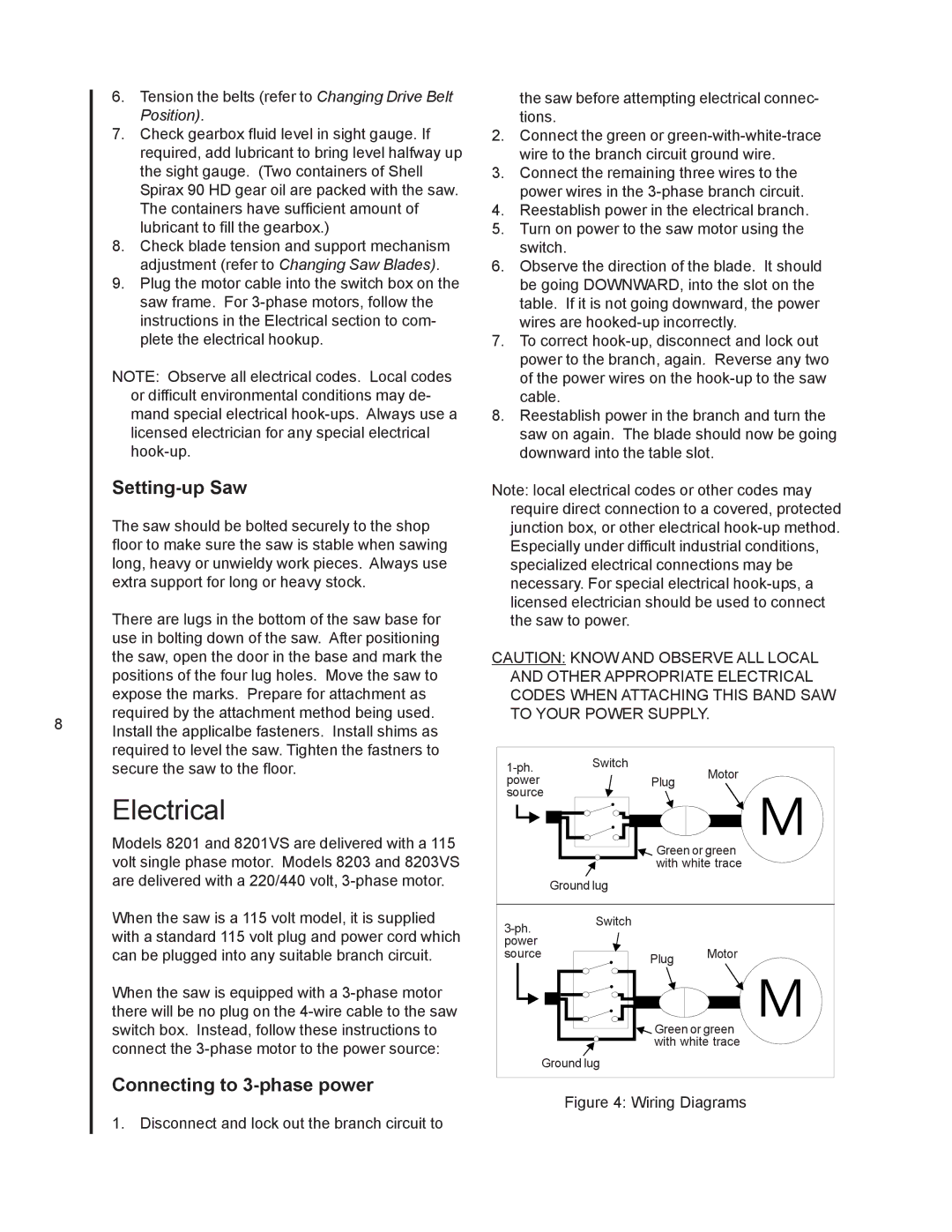
8
6.Tension the belts (refer to Changing Drive Belt Position).
7.Check gearbox fluid level in sight gauge. If required, add lubricant to bring level halfway up the sight gauge. (Two containers of Shell Spirax 90 HD gear oil are packed with the saw. The containers have sufficient amount of lubricant to fill the gearbox.)
8.Check blade tension and support mechanism adjustment (refer to Changing Saw Blades).
9.Plug the motor cable into the switch box on the saw frame. For
NOTE: Observe all electrical codes. Local codes or difficult environmental conditions may de- mand special electrical
Setting-up Saw
The saw should be bolted securely to the shop floor to make sure the saw is stable when sawing long, heavy or unwieldy work pieces. Always use extra support for long or heavy stock.
There are lugs in the bottom of the saw base for use in bolting down of the saw. After positioning the saw, open the door in the base and mark the positions of the four lug holes. Move the saw to expose the marks. Prepare for attachment as required by the attachment method being used. Install the applicalbe fasteners. Install shims as required to level the saw. Tighten the fastners to secure the saw to the floor.
Electrical
Models 8201 and 8201VS are delivered with a 115 volt single phase motor. Models 8203 and 8203VS are delivered with a 220/440 volt,
When the saw is a 115 volt model, it is supplied with a standard 115 volt plug and power cord which can be plugged into any suitable branch circuit.
When the saw is equipped with a
Connecting to 3-phase power
1. Disconnect and lock out the branch circuit to
the saw before attempting electrical connec- tions.
2.Connect the green or
3.Connect the remaining three wires to the power wires in the
4.Reestablish power in the electrical branch.
5.Turn on power to the saw motor using the switch.
6.Observe the direction of the blade. It should be going DOWNWARD, into the slot on the table. If it is not going downward, the power wires are
7.To correct
8.Reestablish power in the branch and turn the saw on again. The blade should now be going downward into the table slot.
Note: local electrical codes or other codes may require direct connection to a covered, protected junction box, or other electrical
CAUTION: KNOW AND OBSERVE ALL LOCAL AND OTHER APPROPRIATE ELECTRICAL CODES WHEN ATTACHING THIS BAND SAW TO YOUR POWER SUPPLY.
Switch | Motor | ||
power | Plug | ||
| |||
source |
|
|
![]() Green or green with white trace
Green or green with white trace
Ground lug
Switch |
| |
power |
| Motor |
source | Plug | |
|
|
![]() Green or green
Green or green
with white trace
Ground lug
